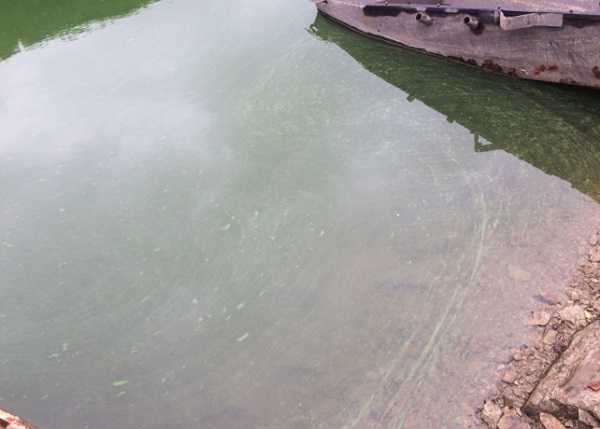 Cyanobacteria in the Rommwiss in 2017;
Cyanobacteria in the Rommwiss in 2017;
Luxembourg's Ministry of the Environment, Climate and Sustainable Development and the Administration de la gestion de l'eau (Water Management Administration) have issued an alert concerning the presence of cyanobacteria, also known as "blue-green algae", at the "Rommwiss" beach on Lake Haute-Sûre.
As part of the regular monitoring of bathing water quality, Luxembourg's Water Management Administration has recorded a proliferation of cyanobacteria (also known as "blue-green algae"), which has been observed at the Rommwiss beach along the Haute-Sûre in the north of the Grand Duchy. As a result, a ban on swimming and all nautical activities has been imposed with immediate effect at this specific beach.
The LIST Public Research Centre was commissioned to conduct more detailed analyses to determine the species composition of cyanobacteria, a task in which they were also involved last year when the same algae occurrence was noticed. The analyses revealed the presence of Microcystis, Anabaena and Aphanizomenon, among others. The toxins produced by these cyanobacteria can be dangerous for humans, aquatic wildlife, domestic animals and livestock.
As well as the ban on nautical activities at the beach in question, the Water Management Administration, in consultation with the Health Directorate, has recommended that the public prevent dogs and other pets from drinking from the lake water and avoid consuming fish caught in the lake.
Individuals who experience health problems after swimming in the lake should consult a doctor and mention any contact with toxic cyanobacteria.
For the moment, the swimming ban does not apply to the other official bathing beaches on Lake Haute-Sûre, nor those on Lake Weiswampach or at the Remerschen.








